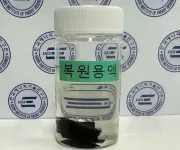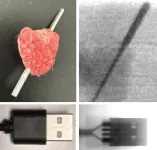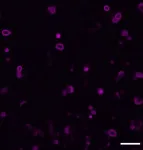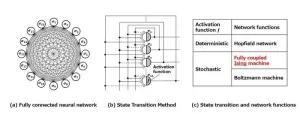This year’s Spark Grant awardees represent scientific innovation at its finest, and their work spans across disease fields such as neuroinflammation, cancer, pulmonary disease, tuberous sclerosis and more.
“We are thrilled to recognize the cutting-edge achievements of this year's honorees that advance the field of gene and cell therapy,” said Roger Hajjar, MD, head of the Mass General Brigham Gene and Cell Therapy Institute. “Their innovative work not only furthers scientific understanding but also brings hope to patients living with several different diseases and conditions.”
“We congratulate these investigators who are paving the way for groundbreaking advancements,” said Nathan Yozwiak, PhD, head of research at the Mass General Brigham Gene and Cell Therapy Institute. “The investment in their research ensures that Mass General Brigham remains at the forefront of gene and cell therapy advancements.”
Established in 2022 and uniting more than 500 researchers and clinicians, the Mass General Brigham Gene and Cell Therapy Institute is committed to finding targeted and transformative treatments that have the potential to cure diseases or halt their progression. The institute leverages expertise from across the entire ecosystem of medical innovation and fosters an environment of shared knowledge and collective impact by bringing together researchers utilizing gene and cell therapy platforms.
Applications were evaluated on numerous criteria, including leadership potential in the field of gene and cell therapies, magnitude of the unmet need that the project addresses, technical quality of the proposal, and potential for commercial opportunity.
2024 Spark Grant Awardees
Yedda Li, MD, PhD, and Florian Eichler, MD, Massachusetts General Hospital
Hematopoietic stem cell-directed precision genome editing for CNS disorders
Pathologic microglial activation, or microgliopathy, is a hallmark of many neurogenetic disorders but is difficult to target therapeutically. Current central nervous system (CNS)-targeted gene therapies, including viral-mediated approaches, are ineffective at directly targeting microglia due to poor transduction efficiency. Allogeneic hematopoietic stem cell transplantation (HSCT) is the standard treatment for monogenic microgliopathies, but it comes with risks, like graft-versus-host disease and chronic immunosuppression.
The team is working on a novel modality leveraging ex vivo precision genome editing (PGE) of patient-derived HSCs to treat microgliopathies. This strategy could correct neurogenetic disorders by generating healthy, genome-edited microglia, offering benefits such as improved CNS immunomodulation, physiological gene expression and fewer adverse effects. The project aims to demonstrate the therapeutic potential of this approach by using base editing to correct common mutations in the CSF1R (associated with adult-onset leukoencephalopathy) and ABCD1 (associated with adrenoleukodystrophy) genes.
Mark Leick, MD, Massachusetts General Hospital
Dual targeting BITE secreting CAR-T cells for AML
Acute myeloid leukemia (AML) is the most common acute leukemia in adults, with a significant unmet need for effective treatments, especially in older and relapsed/refractory patients. Three key challenges remain in AML therapy: First, AML lacks a clear target like CD19 or BCMA, making a multi-targeted approach essential for effective CAR-T cell therapy. Second, CAR-T cells must maintain persistence to survive and function long enough to eliminate tumor cells. Third, the intrinsic potency of T cells is often diminished due to factors like patient age, previous therapies and the immunosuppressive nature of AML on T cells.
The team proposes a novel CAR-T cell therapy addressing these issues through an autologous CAR-T product engineered to secrete a T-cell engaging antibody molecule (TEAM) for dual targeting of AML antigens CD70 and CD33. CD70 is a validated antigen with limited off-target expression, while CD33 synergizes with CD70, enhancing efficacy. This dual-target approach is designed to first demonstrate safety and efficacy in relapsed/refractory patients and has the potential to move to earlier treatment lines, offering a new pathway for improving AML outcomes.
Nitin Joshi, PhD, Brigham and Women’s Hospital and Ana Griciuc, PhD, Massachusetts General Hospital
Precision nose-to-brain gene therapy to modulate neuroinflammation
Neuroinflammation, a chronic inflammatory response in the central nervous system, is a key factor in the development of neurodegenerative diseases. Targeting and modulating microglia-mediated neuroinflammation holds promise for slowing disease progression. However, one of the biggest challenges is overcoming biological barriers, particularly the blood-brain barrier (BBB), which restricts efficient delivery of gene therapies to the brain.
To address this, the team is building a novel delivery platform that ensures both high brain accumulation and targeted delivery to microglia. Intranasal delivery is a promising non-invasive solution, bypassing the BBB while minimizing systemic exposure and reducing the risk of side effects. This approach involves a two-part system: (1) Microglia-targeted nanoparticles (NPs) that carry gene therapy agents; (2) An in situ forming nasal gel for sustained nose-to-brain delivery of the NPs. The overall goal is to refine this platform to enable targeted nose-to-brain delivery of gene therapies, specifically to modulate neuroinflammation in neurodegenerative diseases.
Xandra Breakefield, PhD, Massachusetts General Hospital and Yan Tang, PhD, Brigham and Women’s Hospital
Gene therapy for tuberous sclerosis complex (TSC)-associated disorders
Tuberous sclerosis complex (TSC) is a hereditary disorder that affects multiple organs, including the brain, skin, lungs and kidneys. TSC is characterized by aberrant mTORC1 hyperactivity caused by inactivating mutations in TSC1 and/or TSC2 genes. Over 90% of individuals with TSC experience neurological symptoms such as epilepsy, autism, and cognitive disabilities, often linked to pathological features like cortical tubers and subependymal giant cell astrocytomas (SEGAs). Pulmonary lymphangioleiomyomatosis (LAM) is the lung manifestation of TSC, which primarily affects women. This progressive and destructive disease may lead to lung failure and the need for lung transplantation. LAM is the leading cause of death for women with TSC.
Innovative research aims to target both the brain and lung manifestations of TSC leveraging adeno-associated viruses (AAV)s and lipid nanoparticles (LNPs)/mRNA as a means of gene replacement therapy. The two teams are working towards integrating their expertise in this disease and gene therapy to arrest disease progression, reduce seizures and recover from respiratory failure.
###
About Mass General Brigham
Mass General Brigham is an integrated academic health care system, uniting great minds to solve the hardest problems in medicine for our communities and the world. Mass General Brigham connects a full continuum of care across a system of academic medical centers, community and specialty hospitals, a health insurance plan, physician networks, community health centers, home care, and long-term care services. Mass General Brigham is a nonprofit organization committed to patient care, research, teaching, and service to the community. In addition, Mass General Brigham is one of the nation’s leading biomedical research organizations with several Harvard Medical School teaching hospitals. For more information, please visit massgeneralbrigham.org.
END






